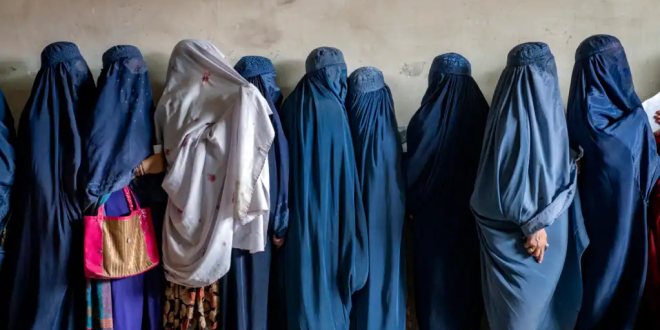KABUL – The Taliban’s growing interference in international aid operations in Afghanistan has led to the suspension of 83 humanitarian projects, according to a report released by the UN Office for the Coordination of Humanitarian Affairs (OCHA) on October 22. Aid agencies recorded over 170 incidents of interference in September, marking a 31% increase from the previous month and a 66% rise compared to the same period in 2023.
The Taliban’s actions included detaining or arresting nine aid workers and shutting down three facilities last month, with further restrictions on the movement of aid supplies and personnel. The UN report cited “interference in humanitarian activities, violence against humanitarian personnel, assets, and facilities” as common issues.
The situation is critical: Afghanistan is currently facing the world’s largest humanitarian crisis, and experts worry the Taliban’s oversight will obstruct aid delivery to millions of vulnerable Afghans. Ashley Jackson, co-founder of the Center on Armed Groups, voiced concerns, saying, “When interference obstructs aid from reaching those in desperate need, it’s extremely troubling.” Jackson noted that while aid groups often negotiate with the Taliban, the process is arduous and resource-intensive.
Looking Ahead: The Taliban’s restrictive policies risk alienating Western donors, who may reconsider funding Afghanistan’s critical aid programs. The UN, facing challenges to fund its $3 billion annual humanitarian appeal, has already expressed urgency in securing resources to sustain aid efforts.
In Related News: Kazakhstan recently signed a memorandum with the Taliban administration to boost bilateral trade to $3 billion annually. The agreement includes plans to build railway connections linking Central Asia with southern and eastern Afghanistan, bordering Pakistan, as well as new trade routes that could bolster Kazakhstan’s access to Middle Eastern markets. The arrangement, despite the Taliban’s lack of international recognition, reflects Central Asian countries’ growing economic and security interests in Afghanistan.
 Afghanistan Times
Afghanistan Times




